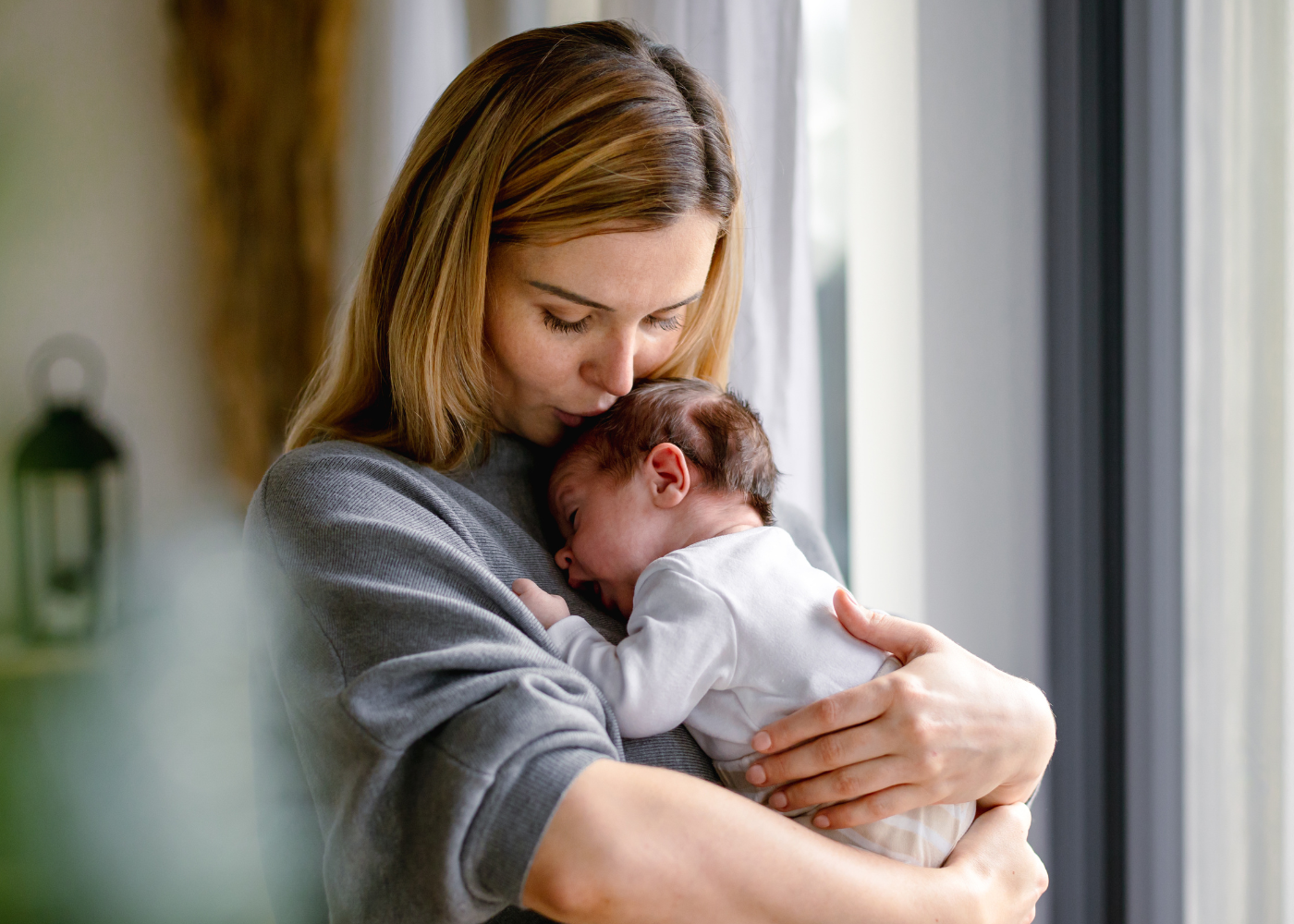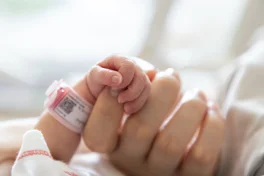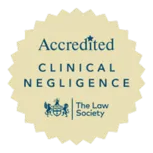Understanding the baby’s brain injury: What is IVH?
Soon after birth, our client’s baby became unwell and a brain scan confirmed that they had suffered an intraventricular haemorrhage (IVH). This is a type of bleeding that takes place inside or near the brain’s ventricles, which are small spaces that produce and move cerebrospinal fluid, which helps to cushion and protect the brain and spinal cord.
Bleeding in or near these areas can raise pressure inside the brain and harm nearby tissue. This can lead to long-term effects, including problems with movement, coordination and learning. In some cases, children may develop conditions such as cerebral palsy. Many will require regular therapy, medical treatment and additional care throughout their lives.
IVH is most often seen in premature babies, whose blood vessels are more delicate. But it can also happen in full-term newborns, especially if there are complications during the birth or in the early hours that follow. In this case, the baby had seemed well initially, but their condition worsened within the first day. The family were left extremely concerned and wanted answers about what had caused the bleeding, and whether more could have been done to prevent it.
Investigating possible failures in care
Hospitals have to legally follow clear standards of care when looking after newborn babies, especially during those critical early hours and days. This includes checking for signs of distress, acting quickly if a baby’s condition changes, and keeping parents fully informed throughout.
Our investigation focused on how the baby had been managed on their first day of life. The hospital involved denied that any mistakes had been made and argued that the IVH had occurred naturally. But the family felt strongly that something had gone wrong and that they had not been given clear answers about their baby’s condition.
We worked closely with leading independent medical experts in neonatal care, brain imaging (neuroradiology), and child neurology. Their role was to examine the evidence, including the baby’s brain scans and hospital notes, and give professional opinions about what had happened and whether the baby’s brain injury could have been avoided. These experts helped us build a clearer picture of the events leading up to the injury and whether better monitoring or earlier action from the carers might have changed the outcome.

Conflicting expert opinions and preparing for trial
As the case progressed, differences in medical opinion became one of the main points of dispute. One of the experts we instructed, a consultant neuroradiologist, reviewed the baby’s early brain imaging and initially had a different view to the hospital’s team. Later, this expert updated their opinion to confirm that a subgaleal haematoma, a collection of blood beneath the scalp that can be linked to traumatic births, had been present. The hospital argued that this supported their view that the bleeding had happened naturally and was not caused by any failures in care, claiming that this weakened our case.
But our expert stood by their overall conclusion. They explained that, although the scalp swelling was present, it did not fully explain the brain injury. They believed that the baby had not been monitored closely enough and that earlier action could have changed the overall outcome.
We carefully reviewed all the medical evidence and continued to prepare the case for a split trial, which is a type of legal process where the court first decides whether the hospital was legally responsible (known as liability), and only then considers how much compensation should be awarded (known as quantum). Our legal team worked closely with the family throughout, helping them understand their options and the potential outcomes.
A settlement reached before trial
As the legal case progressed, we agreed to take part in a settlement meeting. This gave everyone another opportunity to review the medical evidence, narrow down the areas of disagreement, and explore whether the case could be resolved without going to court.
Although the hospital continued to deny any wrong doings, they made a financial offer to settle the claim out of court. We worked closely with the family and carefully assessed the risks and benefits. Whilst we remained confident in the strength of the case, there is always the possibility that a judge could reach a different view, especially given the complex medical evidence.
The family were reassured that the offer would allow them to secure the support their child would need in the years ahead. They chose to accept the £3 million compensation, knowing it would provide practical and financial security to help them plan for their child’s long-term care needs.

How the compensation will help the family
The settlement will make a significant difference to the child’s quality of life and long-term wellbeing. The funds will be used to:
- Buy and adapt a home that is suitable for the child’s physical and medical needs
- Help access private therapies, including speech and language therapy, physiotherapy and occupational therapy
- Provide essential equipment and mobility aids
- Arrange specialist care and support
- Set up a professionally managed trust to safeguard the compensation and plan for the child’s future
Our Court of Protection team is now supporting the family with the legal steps needed to appoint a professional deputy. A deputy is a legally authorised person who can make decisions on behalf of someone who is unable to make certain decisions for themselves, such as managing large sums of money. In this case, the child will likely lack capacity to manage their finances independently in the future, due to the effects of their brain injury.
The professional deputy will ensure the funds are used in the child’s best interests as they grow older, including decisions about care, therapies, education support, and long-term financial planning.
How Simpson Millar can help
If your child has suffered a brain injury or any other birth-related injury, and you are concerned that mistakes may have been made in their care, our Medical Negligence team is here to support you.
We know how devastating it can be when something goes wrong during pregnancy, labour or shortly after birth. Birth injuries can have a serious impact on both the child and their family, both emotionally, physically and financially. Making a claim is not just about securing a compensation for what happened, but about understanding what went wrong and ensuring that lessons are learned for the future.
Our team has helped families across England and Wales with a wide range of birth injury claims, including:
- Brain injuries such as intraventricular haemorrhage (IVH) and cerebral palsy
- Delayed delivery or failure to act on signs of distress
- Misuse of instruments during assisted births
- Delayed diagnosis or mismanagement of maternal or neonatal conditions
- Inadequate monitoring during labour and delivery
Our Court of Protection team can also provide specialist advice and ongoing legal support for families in cases where a loved one lacks capacity to manage their own affairs. We help with deputyship applications, setting up financial safeguards such as trusts, ensuring all Court requirements are met, and providing long-term guidance to families who need someone to help manage their loved one’s compensation in a safe and legally compliant way.
The team works closely with our Medical Negligence and Personal Injury Lawyers from the early stages of a claim through to settlement and beyond, ensuring continuity of care and reassurance for families facing complex situations. In this case, their involvement has given the family the security and peace of mind that the child’s future needs will be met and that expert support will remain in place as circumstances change.
We offer a free claims assessment for Medical Negligence Claims and will always explain your rights in clear, easy to understand language. If we can take on your case, we’ll guide you through the process step by step and work with independent medical experts to investigate what went wrong.
Our goal is to make the process as straightforward and as stress-free as possible. Call us today on 0808 239 5461 for a free, no-obligation case assessment, or request a callback, and we’ll talk with you about how we may be able to support you.






